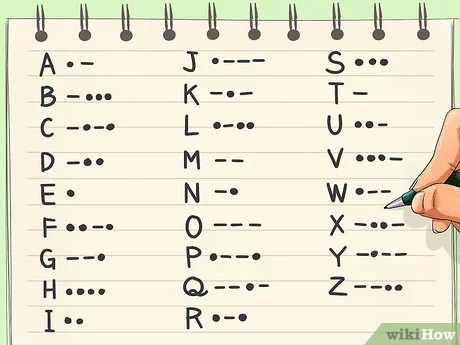Learning Morse Code Translator can be an exciting and rewarding journey. Here are some tips and resources to help beginners get started:
Understand the Basics: Familiarize yourself with the fundamental concepts of Morse code. Learn about dots, dashes, and the timing and rhythm involved in representing characters. Understand the binary nature of Morse code, where dots and dashes correspond to "1" and "0" respectively.
Start with Alphabets and Numbers: Begin by learning the Morse code representations for the letters of the alphabet and the numbers 0-9. Practice recognizing and reproducing these characters in Morse code.
Learn Commonly Used Prosigns: Prosigns are special Morse code combinations used to convey common phrases or instructions. Examples include "SOS" (used as a distress signal) and "BK" (Break, indicating the end of a transmission).
Practice Listening Skills: Morse code is often received through auditory means. Practice listening to Morse code signals and try to decipher the characters. Start with slower speeds and gradually increase the speed as you become more comfortable.
Use Mnemonics and Associations: Associate Morse code characters with visual or auditory cues to aid in memorization. For example, you may create mental images or associate specific sounds with each character to help remember them.
Flashcards and Apps: Utilize flashcards or mobile applications specifically designed for learning Morse code. These resources often provide interactive exercises and quizzes to reinforce your learning. Some popular apps include "Morse Mania" and "Morse Toad."
Online Tutors and Communities: Join online forums, chat groups, or social media communities dedicated to learning Morse code. Engaging with fellow learners and experienced operators can provide valuable guidance, practice opportunities, and support.
Practice Regularly: Consistency is key. Set aside dedicated practice time each day to reinforce your skills. Regular practice will help you build fluency and improve your ability to recognize Morse code characters instinctively.
Morse Code Generators: Use online Morse code generators that allow you to input text and generate the corresponding Morse code representation. This can help you practice decoding messages and improve your recognition speed.
Join Amateur Radio Groups: Consider getting involved in amateur radio activities. Amateur radio operators often use Morse code, and participating in their activities can provide practical experience and opportunities for real-world communication.
Remember, learning Morse code requires patience and persistence. It's a skill that improves with practice over time. Enjoy the learning process and celebrate your progress along the way. Good luck with your Morse code journey!




